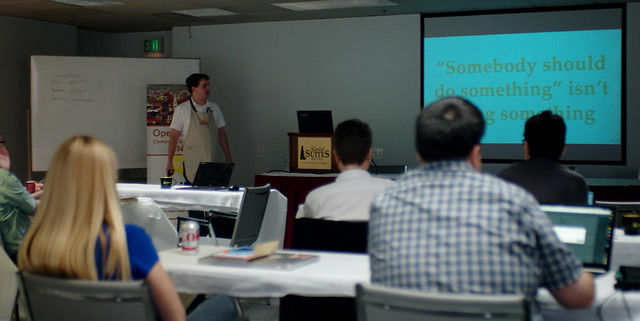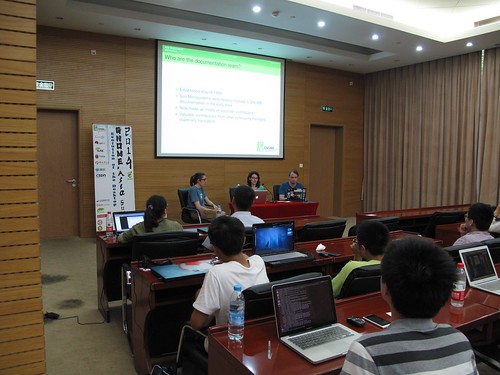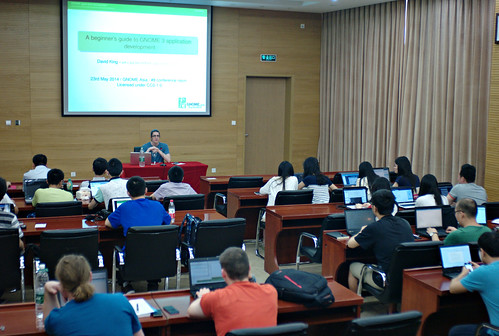It is traditional for the documentation team try to meet a few times per year for hackfests, alternating between Europe and North America to help the whole team make it to at least one event per year. The hackfests serve two purposes: getting work done and motivating/rejuvenating the team.
This year, we met in Norwich to work on user docs for 3.12, in Berlin for the developer experience hackfest, at GNOME.Asia to guide new contributors to GNOME and at Open Help in Cincinnati for the best documentation conference and lots of awesome improvement to the sysadmin guide. We also hung out together at GUADEC. It’s unfortunate that not all the team members could make it to Open Help and GUADEC.
GUADEC was interesting this year. It was great to meet up with old friends, meet lots of new people (/me looks at Shobha) and new old people who I should have long since met by now. Tarte flambée and whisky were had by all. Hair happened to some. Tea, damsons and mirabelles also happened (shortly after we returned, I found a mirabelle tree in the shared green space across the road from our house). It was nice to see everyone enjoying themselves at the picnic and football. Bastien always wins.
It was a shame to not see as many documentation team members at GUADEC as we’ve had in previous years and the team didn’t really have a proper hackfest either (although we did participate in a screenshot automation BoF). Spending two days in board and adboard meetings isn’t fun, but is necessary and generally much more productive than phone meetings. I was disappointed to see an anti-harassment policy for the conference: it is a shame that it is thought that the community is tending in the direction of harassing behaviour to a point where there is a requirement for the community to enforce the law (harassment and discrimination are illegal in many, if not all, European countries). I want to be part of a community built on mutual respect, not distrust and inability to communicate. It also seems that the policy can only be used by specific individuals, not everyone, which does seem counter-productive.
It seemed to me, having been involved in GUADEC organisation for the last four years, that 2014 was an especially challenging year. I appreciate all the work that Alexandre and the team have put into making it happen. I foresee even more challenges for 2015, but I’m sure that we will all be there to support the new team.
3.14 was a bit of a slow release cycle for documentation as the team as a whole have not had much free time to work on updating it. I would like to thank the translation teams for being awesome and helping out by filing bugs and patches (both of which are very welcome). There are currently rather a lot of documentation patches and branches to review, so I will be concentrating on those in the next few weeks. I hope that the team will be able to hold another hackfest in January or February to prepare for 3.16, but this is currently a bit of an uncertainty unless we can find sponsors to help with travel. If you know of anyone interested in sponsoring the hackfest please get in touch with the team or with me.
Thank you to the GNOME Foundation for sponsoring my travel and accommodation at GUADEC, and to Liam, Ella, Finn and Martin for looking after the chickens. I wouldn’t have been able to make it to GUADEC without you.












